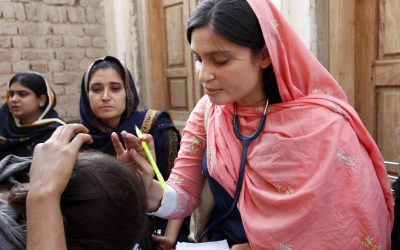Beyond Climate Migration : escaping the confines of a concept
Dr Sarah Louise Nash
Sarah is in 2016-17 Mercator IPC fellow at Istanbul Policy Centre. This blog post is based on discussions at the workshop ‘Beyond Climate Migration’ held at Istanbul Policy Center in April 2017.
In recent years the concept of ‘climate migration’, put simply migration supposedly caused by or at the very least linked to climate change, has enjoyed rising popularity. And there is strong evidence that people’s mobility will be impacted by climate change, leading to changes in mobility becoming recognised as a central societal impact of climate change by the Intergovernmental Panel on Climate Change (IPCC).
Against this background it seems logical that the concept of ‘climate migration’ has emerged; providing a term within which these ideas can be packaged and which can carry these complex discussions from the realm of the IPCC and academic research into the media and even into the world of global climate policy.
But concepts can be limiting. By continuing to favour ‘climate migration’ as a handy way to package discussion on climate change and people’s mobility we continue to be trapped in seemingly never-ending discussions of whether it is actually possible to prove causality between climate change and particular instances of people moving (probably not), what the cut-off points are for designating someone a climate migrant (highly arbitrary), and whether it is even possible to identify someone as being a climate migrant (again, probably not).
‘Climate migration’, both the term and the ideas it encapsulates, is therefore proving limiting at a point where the challenges of climate change and the challenges associated with human mobility (and opposition to it) require just the opposite. This is not just a problem for academia. Ideas bound up with ‘climate migration’ are also driving policy developing at the global level, and civil society actors have embraced ‘climate migration’ as a framing for climate justice concerns.
It is therefore time to make a break for it and move beyond ‘climate migration’. But how do we do that? And what might the alternatives look like?
Moving beyond climate migration will require a great deal of conceptual work, seemingly far removed from the on-the-ground realities of people affected by climate change, or even the realities of the climate change negotiator sitting in a UN negotiating room. It means grappling with how we understand the world, how we claim to know things about the world, and what effects different ways of understanding and knowing might have on the world around us.
This is by no means an easy feat, but the rewards may be worth the trouble. Moving beyond ‘climate migration’ will allow us to view mobilities in a broader way, and taking into account a range of factors that prompt people to move (or, indeed, to stay put). By moving beyond ‘climate migration’ we might also free ourselves from the continuous loop of discussions about causality and categorisation and open up spaces for progressive local responses.
Moving beyond ‘climate migration’ could also mean something more radical; in re-thinking climate change and mobility and, most importantly, why we think about them the way we do, we can begin to develop a more transformative vision for the world that we live in.
More news and blog posts
Online Q&A: Covid-19, climate change and migration: 14th May at 3pm BST
Online Q&A session14th May at 3pm BST14th May at 3pm BSTHow does a city in lockdown deal with a sudden climate-driven disaster like a typhoon? The measures needed to cope with a sudden episode of displacement - such as mass emergency shelters - are exactly the...
Climate, migration, neoliberalism
The lecture sketches out a history of neoliberalism, and then looks at how the culmination of this political thinking is reflected in the policies that are being created to address climate change and migration.
Climate change and migration: predictions, politics and policy
Get to grips with one of the defining issues of the 21st Century – how will climate change re-shape migration across the world. Join a free, 100% online course to investigate this essential topic
Related resources and media
No Results Found
The page you requested could not be found. Try refining your search, or use the navigation above to locate the post.


